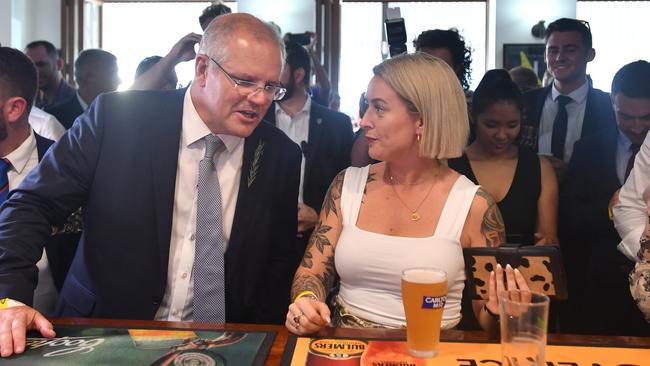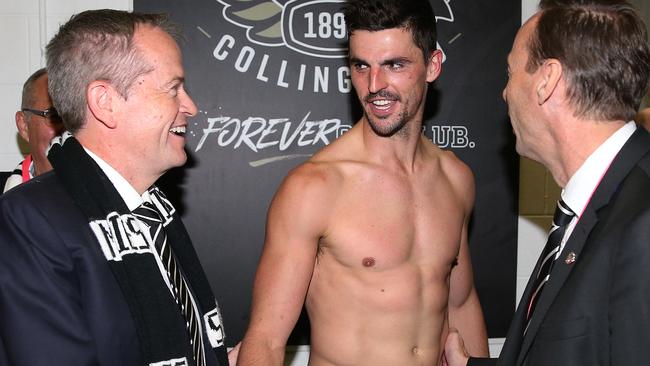Morrison pales in downing ale as veterans shout
Scott Morrison wasn’t in the mood to scull a beer, even when some pub patrons in Townsville demanded: ‘Get that man a yard glass.’

Scott Morrison wasn’t in the mood to scull a beer, even when some members of the lubricated crowd at the Australian Hotel in Townsville demanded soon after his arrival: “Get that man a yard glass.”
It was the Prime Minister’s last commitment on Anzac Day, which took him from a sombre dawn service in the city to the more relaxed breakfast at the local Returned and Services League club and the official march.
By lunchtime, the crowds had grown raucous at the pub, determined that Mr Morrison would fail their test.
When he took only small sips of his pale ale, judgment came swift.
“He’s no Bob Hawke,” some started yelling while others booed. “Oh he’s no Hawkey.” It was one of those classic days, where Australians embraced the sobriety of remembrance in the morning and insobriety after breakfast.

Bill Shorten started the day in Darwin and ended it at an AFL match in Melbourne.
“The true memorial, the most powerful monument to those who have served and suffered and died, is all around us,” Mr Shorten told the crowd at his service.
“The greatest legacy of Anzac is the free country we call home. The peace we live in, the democracy we vote in. The fact that we can gather here today with families and friends to share a meal and raise a glass under the beautiful Territory sky. We can do these things because of those who have served and do serve.”
Mr Morrison was far more at home with the gravitas of the dawn ceremony, speaking about his grandfather’s return from World War II and the “carnage that cannot be unseen”.
“My grandmother Mardi told me Pop would wake in the middle of the night,” he told the thousands gathered in Townsville. “Anzac Day was part of the calendar of his life. But his reflections of the war were personal and private. Few remain now of my grandfather’s generation, but their successors walk among us.”
He said modern conflicts, such as Australia’s longest war in Afghanistan, have produced new heroes and devastated new families with the burden of loss or the homecoming of soldiers “wounded in body and soul”.
Added to this group were the men and women who are “protecting our borders as well”, Mr Morrison said. “We remember the families who have carried and continued to carry the burdens of war,” he said.
At the end of the service, 93-year-old Victor Williams looked a picture of pride. “It just makes you feel so important,” he said.
Vic was too young to see wartime service, but enlisted anyway towards the end of World War II and was there at the Cowra breakout in August 1944 when more than 1000 Japanese prisoners of war tried to escape in the largest prison break of the war.



To join the conversation, please log in. Don't have an account? Register
Join the conversation, you are commenting as Logout